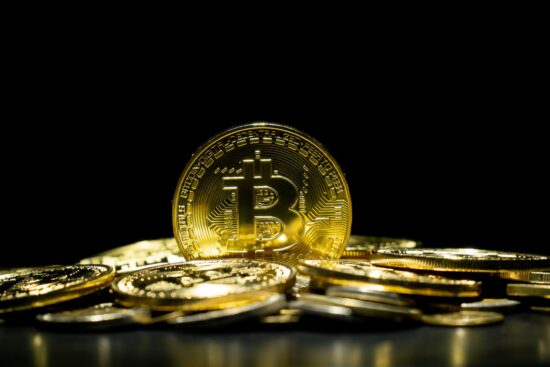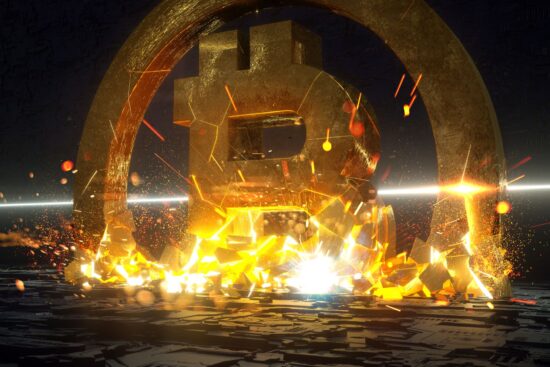
As the technological landscape evolves, the world of cryptocurrency has become a fascinating frontier. Why is that? Because it is getting a lot of attention from tech-savvy individuals and finance buffs. Dear readers, whether you are a pro crypto trader or just giving it a shot in the crypto world, you might have come across the term gas fee. Let’s discuss more about it and transaction Costs on Blockchain.
So,what are gas fees? We wouldn’t be surprised if most of you have heard the term but can’t exactly put it into words. The concept of a gas fee can sometimes be as illusory as the blockchain itself.
But keep your chin up, fellas! This detailed web blog will uncover everything you need to know about gas fees and transaction costs on the blockchain.
Tell us how many times you have wondered why your crypto transfer is taking so long or why you had to pay extra costs. If this has happened to you, you are not alone. Gas fees seem like a Hot topic in the crypto fam at the moment. Understanding how they work could prove really beneficial for both seasoned and newcomers in the crypto industry.
So, are people ready? This web blog will educate and empower you on the complexities of the role of gas fees in blockchain. We will break it down into short and simple language, especially for beginners.
What Are Gas Fees?
Do you guys know how Ethereum transactions actually take place? Well, when we do traditional online transactions, they are handled by the banks. However, blockchain depends on decentralized networks of computers for verifications and record processes. This decentralized system is not something that you get for free, and that is where the gas fee steps up.
Ethereum networks need computational power to perform any task.
Gas fees can be defined as the cost of performing computational transactions on an Ethereum blockchain network or executing a smart contract.
We’ll give you the easiest example. When you are driving on a highway, you pay some amount for a toll, right? And they let you go on your merry way. A gas fee is exactly like that. You are paying a cost to use a resource (the cost required to make a successful transaction).
Look at a gas fee as “the fuel” you need to power up your car (on a blockchain). You will need this fuel for every verification transaction. The more transactions you make, the bigger your network gets.
Why Do Gas Fees Exist in The First Place?
Folks, the gas fee is here to serve a purpose; here is why they exist:
- To reward Miners: A Gas fee incentivizes the miners (entities or individuals responsible for adding new cryptocurrencies to the network, processing, and validating transactions). Miners prioritize some transactions that have higher gas fees.
- Security: Miners are awarded for their ability to use computing power to secure transactions. If there is no gas fee, there won’t be much for miners to participate for
- Network Productivity: A gas fee is also helpful in preventing security breaches like network congestion or spam attacks. As it requires the users to pay a fee for transactions, the gas fee helps discourage unnecessary transactions to keep the network safe.
How Do Gas Fees Work in A Blockchain?
When you make a transaction on a blockchain network, you determine the amount (of gas) you are prepared to pay for that transaction process. Usually, gas fees are paid in the native cryptocurrency of any network (Ether in the case of Ethereum). These native cryptocurrencies or native tokens are the foundation of blockchain’s digital currency. Total cost is determined by two factors: Gas price and gas limit.
Let’s break it down how gas fees in crypto work:
- Units of Gas: When you make a transaction in Ethereum, it is measured in units called “gas.” So, each action you perform, be it sending tokens to your friends or engaging in smart contract interactions, will require a specific amount of gas.
- Gas Price: The gas price is the cost you are ready to pay per unit of gas. A user can set the price and determine how early minors prioritize your transaction. The higher the gas limit, the higher the minors’ reward price.
- Gas Limit: The gas limit is the maximum amount of gas that you are willing to spend on a specific transaction.
- Total Cost: Gas price and Gas limit, together, determine the overall cost of the transaction
Gas Price × Gas limit=Total Cost
What is a Gas fee Calculator?
Gas fees are generally calculated according to the user’s and smart contracts’ gas prices. It is based on the computational complexities of the transactions. If an operation is highly complex, it will require more computational resources, which is why it has a high gas fee. Certain things need to be considered to determine the gas price, like market demand and supply dynamics. Also, users should compete for a quick transaction process by offering high gas fees.
In short, gas fees are a principal feature of blockchain technology that incentivizes miners. In return, they maintain the integrity of the network and distribute resources efficiently. Understanding how gas fees work is important to navigate the cryptocurrencies in blockchain with utmost confidence and clarity.
So, there isn’t any short answer to this question. It would help if you considered several factors of gas fee calculator. Here is a step-by-step list of three factors responsible for it:
Network congestion will determine whether many transactions are competing to get ahead in the game, which will lead to an increase in gas prices.
Transaction complexity showcases how simple transactions require less computational work and, hence, have lower gas fees compared to complex transactions with smart contracts.
User-defined gas prices ensure that you have some liberty in controlling the speed of your transaction. You can determine that by setting a gas price. If you offer a higher price, the process will be faster.
Understanding gas fee calculation is a primary step when considering using blockchain applications. You can make the correct decision by learning what they are, how they work, and what factors affect them.
Gas fee = Gas limit ×Gas price per limit.
If the gas limit is 10,00 and the gas price per unit is 100, the total gas fee would be
10000×100=1000000 Gwei
1 Gwei = 0.000000001 ETH
Closing The Curtains!
Gas fees are important in keeping blockchain transactions running smoothly and securely. They’re like the fuel for this independent system, making sure it’s effective and lasting. We learned how miners or validators get paid gas fees for their important work checking and handling transactions. This cash reward gets them to put computer power into the network, which helps keep it secure. If there were no gas fees, miners may choose not to join in. This could threaten the network’s trustworthiness. Gas fees stop spam and too much traffic on the blockchain. Furthermore, since users have to pay a fee for transactions, it stops the needless activity and gives priority to those who are ready to pay for faster handling.This keeps the amount of network space and transaction volume well-balanced.
People Also Asked For:
Q.1- What are gas fees in crypto blockchain?
Ans: A Gas unit measures the amount of computational effort required to perform specific actions on the Ethereum blockchain network. Gas fees successfully process a transaction or execute a smart contract on the Ethereum blockchain platform. Pay them in Ether (ETH) or its fraction, Gwei.
Q.2- When are deuterium gas fees highest and lowest?
Ans: Ethereum gas fees are usually highest between 2 and 6 PM UTC (Coordinated Universal Time). Conduct Ethereum transactions early in the morning (between 1 AM and 3 AM, 5 AM and 8 AM, 7 9 PM and 11 PM UTC). Ethereum transaction fees vary, so you have to keep an eye out for them. Statistics show that You can observe the lowest gas fees early in the morning, but they can vary every hour.
Q.3- What is the current Ethereum gas fee and gas limit?
Ans: June 4th, 2024: Estimated Ethereum transaction prices (at 10 GWEI):
Swap: $9.10
Borrowing: $7.60
NFT Sale: $15.60
Bridging: $3.00
(source: https://milkroad.com/ethereum/gas/)
Q.4- What is a gas fee calculator?
Ans: When you save any data on Ethereum or conduct a transaction on the Polygon Blockchain, you are required to pay a fee known as a gas fee. Therefore, the Gas Fee Calculator is a tool that assists you in determining these costs.
In determining how much you have to pay, the tool uses real-time blockchain data to calculate the gas fee. : Denote the total gas fee as.
Total gas= amount of gas used for an operation × Cost per unit gas
Q.5- What is Gwei?
Ans: Gwei is a unit of the cryptocurrency Ether (ETH) for transactions on the Ethereum blockchain network.s. Its nickname is Shannon, after the American cryptographer Claude Shannon. A unit of Gwei is equal to 1 nano of ether.
1 Gwei = 0.000000001 or 10-9 ETH.
Q.6- What is a DAI in Blockchain?
Ans: DAI is a stablecoin token or crypto asset on the Ethereum blockchain. It uses smart contracts designed to control supply to keep its value close to 1 USD. To purchase DAI, you have to spend ETH to buy a dollar equivalent amount in DAI. Please remember this text: “The token ” collateralizes others.” cryptocurrencies.
Q.7- Why does Ethereum have a high transaction fee?
Ans: Ethereum generally has high transaction gas fees due to the popularity of NFTs on Ethereum.
Q.8- What is an Ethereum gas Tracker?
Ans: The Ethereum ga tracker is a tool that provides necessary information about the gas fees associated with Ethereum blockchain transactions. Additionally, think of it as a gas station price comparison app, but for the blockchain! Amazing, right?






